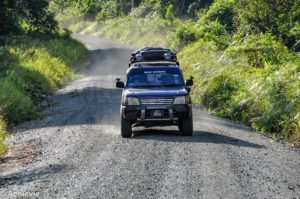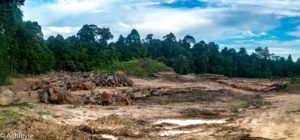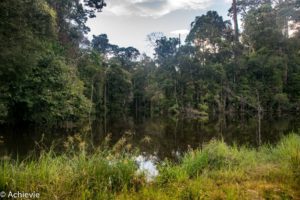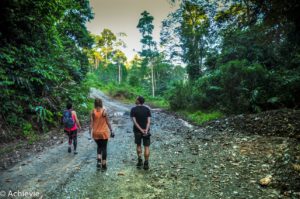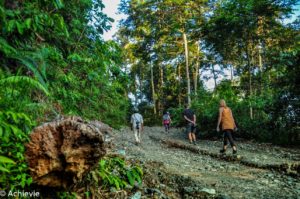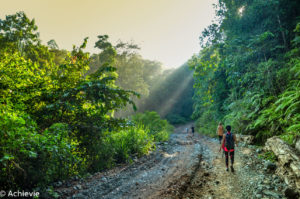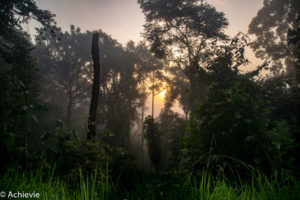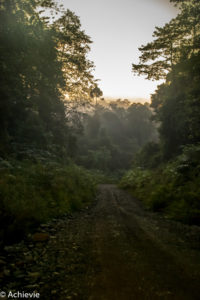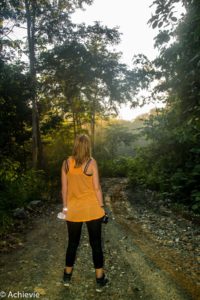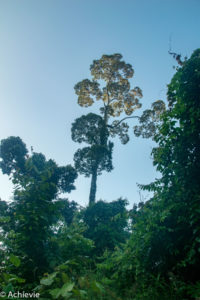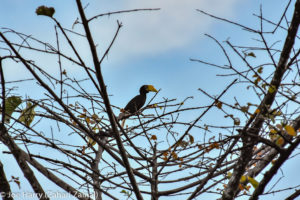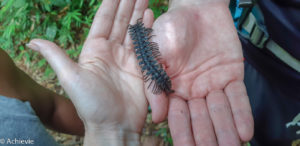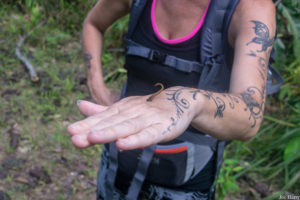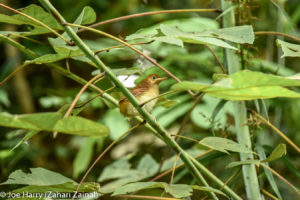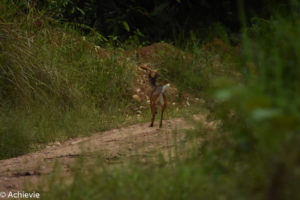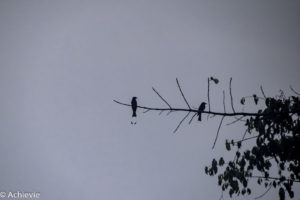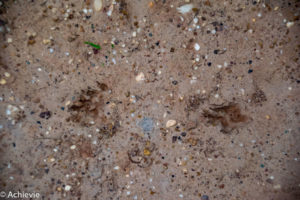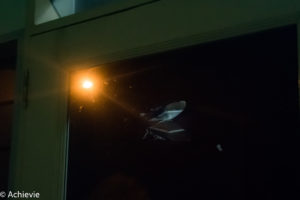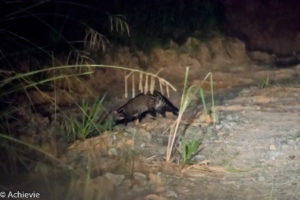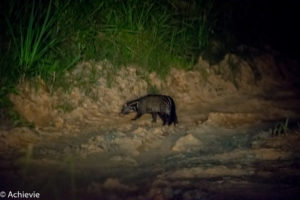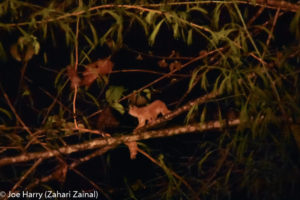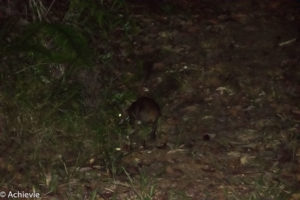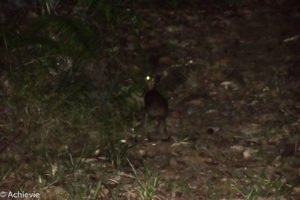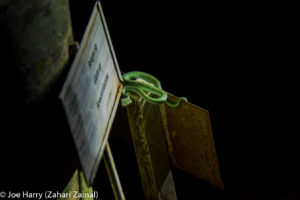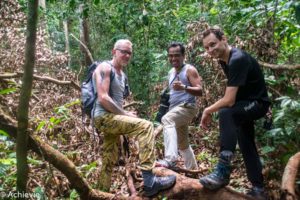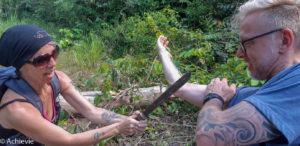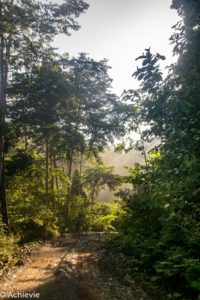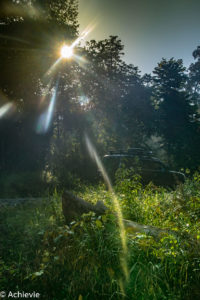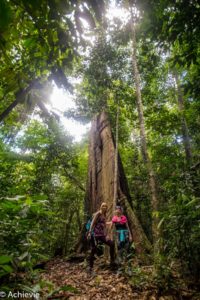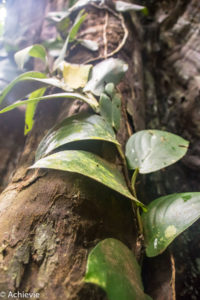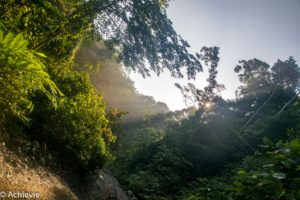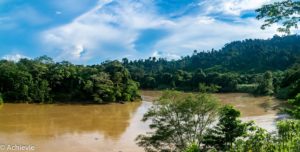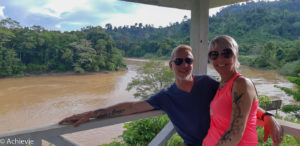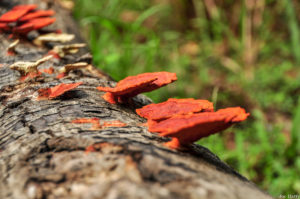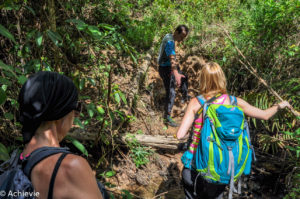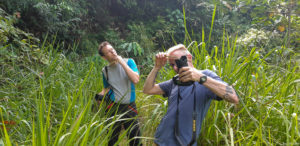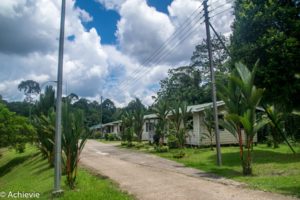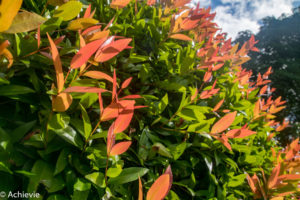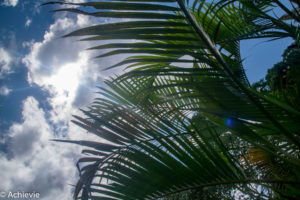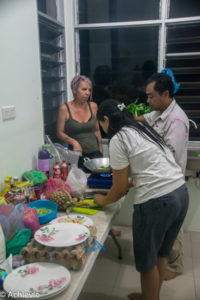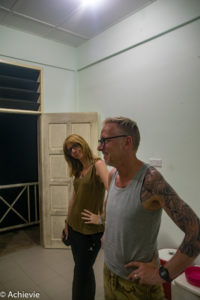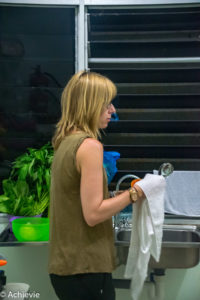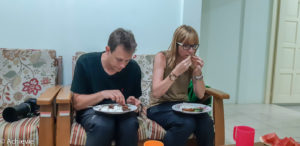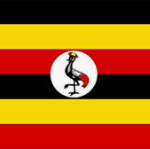We stayed at this tropical rainforest for 3 nights and 3 full days. Our guide Joe and his wife Emee have tried so hard to find the perfect wildlife spotting opportunities. We heard clear calls of a gibbon (but didn’t see them – yet), saw a glimpse of the red-leaf monkey, a slow loris, Malay and Palm civet, mouse deer, wild cat and lots of over-sized insects…
Activities
We had a good mix of morning walks, afternoon hikes, night drives and even a night walk. On the night walk we had a pleasant surprise… Our friend Caro suddenly spotted a baby viper – as in a very poisonous snake… that’s right! Chilling! And pretty close actually, but no attack (luckily). The experience of being all alone in this massive forest is indescribable. We turned out the lights for a while, just standing there and soaking up the experience. Goosebumps.
One tip… make sure to take precautionary measures when you get out there in the dark. Certainly when driving. You guessed it… in order to actually see the animals you of course need lights. Typically the big ones on top of the car, but also smaller flashlights to shine into the grass along the side of the road to catch a reflection in the animals’ eyes. And when you’re standing still and your light’s still on it’s insect invasion! OK, admitted – I’m not fond of insects (that’s an understatement) – but they’re huge! And they sting! I got one (I don’t remember what it was) on my finger. I tried to shake it off, but that wasn’t the best idea, it turned out… It stung and I felt the poison (harmless, but stingy) entering my blood stream. That part of my finger was sore all through the next morning! I sound like a sissy, I know… It wasn’t that bad, but I’m just saying: be prepared. Put something on your head, cover your mouth and nose and get your sleeves over your hands. Then you’ll be all right.
The mornings are a lot more at ease. I just love the sound of nature in the morning. Mammals and birds waking up – so soothing. The lingering mist brings a special touch to it too. One of the “animals” to watch out for at all times is the blood-sucking leeches. Sounds more horrific than they actually are, but still. We only saw smaller ones, which are almost cute. It’s another example of how well designed nature is. The leech has one end of its body attached to a branch or a leaf and the other end reaching out for anything that passes by. Once it has attached itself to the host’s body, it searches to the warmest spot, again with the other end of its body. As soon as it’s found the perfect spot, it starts sucking… Not that much of course and once finished, it apparently drops off. We had to pull a few off, however. A few days later, at Danum Valley, we saw a big one, coming from another backpacker’s back – that one wasn’t cute at all… brrrr….
Forest management
The Deramakot Forest Reserve abides by sustainable forest management – for which is was certified as such – promoting the protection and conservation of wildlife. Distinction is made between different sections – some are completely protected (which should be 3 quarters of the entire forest area), whereas in others so-called “reduced impact lodging” is carried out. This means that only trees that have minimal impact on soil and the surrounding forests will be removed. The idea is to mimic the natural processes for production of low volume, but high quality and therefore high priced timber products in a sustainable manner to optimize biodiversity, forest structure & function and socio-economic needs. Every 10 years this quarter of the forest is switched.
Other measures are taken to further minimize the impact of human presence and interference to the eco-system, like enrichment planting, carried out in a period of five years and the fact that only a limited number of tourists can remain in the forest.
Accommodation
The accommodation in the forest reserve is basic, but has all you need. There’s a guesthouse and a camping ground, but we were staying in one of the four chalets. The chalets have electricity, a shower (with heated water!) and comfortable beds. As we were the four of us, we had the chalet all to ourselves. Joe and his wife Emee were staying somewhat further down the road. Every morning, noon and evening they spoiled us with amazing food, all natural and freshly made – what could you ask more?
Special thanks again to our guide Joe (Zahari Zainal) for sending us the incredible pictures he took on our trips!
Other Countries we visited
Have a look at the other countries we ‘achievied’ to visit, and other Achievies…
